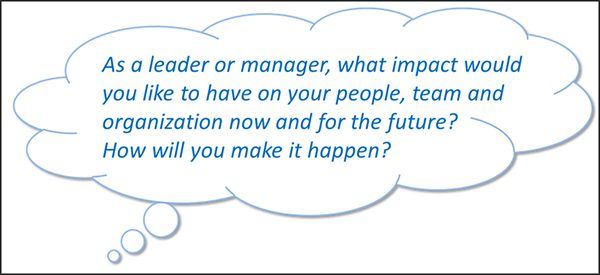Developing Coaching Competences
Leader is a challenging role, and to be a coach-like leader is even more challenging. As reflected in some international learning and development surveys, such as Chartered Institute of Personnel and Development (CIPD) Learning and Talent Development Survey Report, coaching is one of the main areas in which leaders lack competence.
To help leaders and managers develop coaching competences, more and more companies are involving external coaching resources, namely to hire professional coaches for their leaders. This can be particularly effective with experienced leaders or managers who know the basics and want to refine their skills or deal with more complex management challenges. Internally, they can also learn from other coach-like leaders.
A good way for leaders and managers to have better awareness of their strengths and areas for development is to do self-assessment and compare with the feedback from others. Through this, they can have more focused and intentional efforts on coaching development.
Coaching, like swimming, cannot be learnt by reading about it – Henry Mintzberg, McGill University
The most important approach of learning coaching is just to practice coaching. With intention, good observation and cautious steps, this can happen both inside and outside the workplace.
Snapshot of Coaching Culture
Thomas Crane, in his book of The Heart of Coaching, described a coaching culture, in which all members engage in candid, respectful coaching conversations, unrestricted by reporting relationships, about how they can improve their working relationships and individual and collective work performance. All have learned to value and effectively use feedback as a powerful learning tool to produce personal and professional development, high-trust working relationships, continually-improving job performance, and ever-increasing customer satisfaction.
Coaching has the biggest impact on an organization when it “cascades” through the management ranks, with senior leaders coaching juniors to be better coaches, who in turn coach their juniors (and sometimes vice-versa). Managers can also coach each other. At this point, coaching behaviors become the norm – part of “the way we do things round here”, which is a coaching culture.
I would say that a coaching organizational culture is a growth journey that is worth exploring by leaders, human resources practitioners, as well as business owners.
Conclusion and Reflection:
Coaching is a highly effective approach for companies to promote performance, learning and growth in the organization.
Coach-like leaders, through embracing enlightening principles (coaching mindset and spirit) and practicing powerful coaching skills and tools, tremendously support individuals, teams, organizations and themselves to achieve remarkable results and sustainable growth.
In the fast changing business environment and knowledge economy, a coaching approach of leadership could be a critical opportunity for leaders and organizations to explore to develop a highly engaging, performing, learning and growing organization in the new era.
References:
Great Leadership (April 2009) How to Create a Culture of Accountability and Hold People Accountable http://www.greatleadershipbydan.com/2009/04/how-to-create-culture-of-accountability.html
Irene Leonard (n.d.) Coaching Skills That Can Make A Difference in Your Practice http://www.coachingforchange.com/pub08.html
Jane Greene and Anthony Grant (2003) Solution-focused Coaching: Managing People in a Complex World
John Whitmore (April 2002), Coaching for Performance (3rd edition)
Mark McGuinness (March 2007), Business Coaching – An Introduction http://www.wishfulthinking.co.uk/2007/03/12/an-introduction-to-business-coaching/
Natalie Ekberg (n.d.) The Importance of Using “Acknowledgment” in Coaching http://ezinearticles.com/?The-Importance-of-Using-Acknowledgment-in-Coaching&id=4365142
Road to Resilience (n.d.) Team Coaching http://www.coachmargie.com/html/team_coaching.html
Support and Challenge (October 2012) Support and Challenge http://supportandchallenge.com/2012/10/12/support-and-challenge/
Thomas Crane (February 2007), The Heart of Coaching (4th edition)
